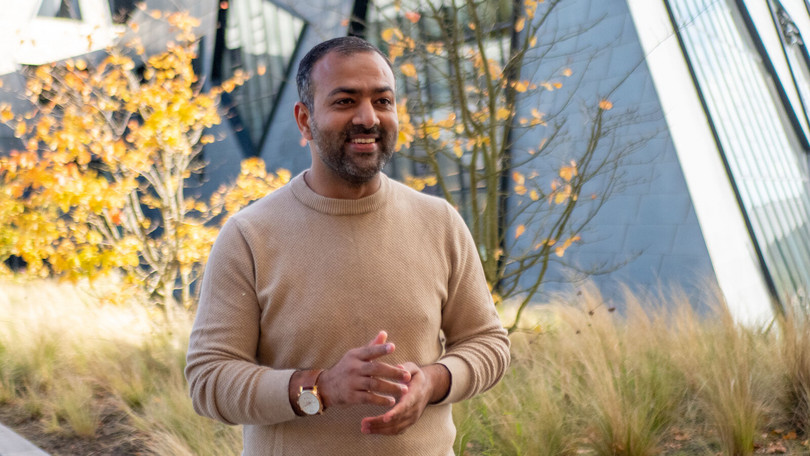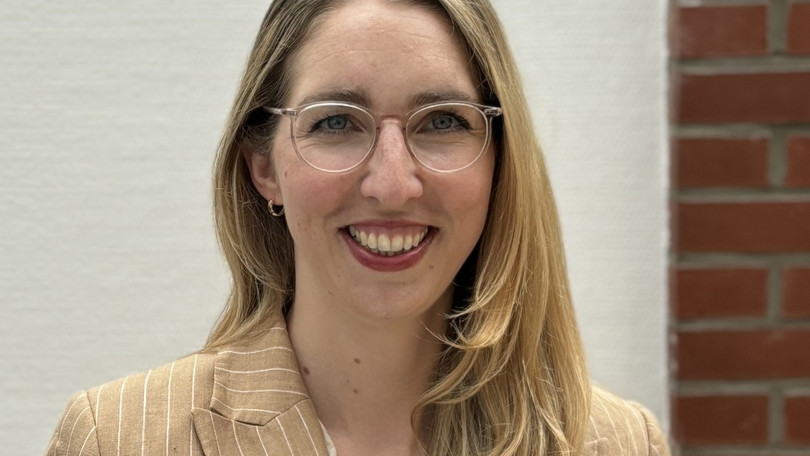Doctoral Research Group Sustainability Science
Combating poverty, hunger and climate change, sustainable energy supply and cities, education and clean drinking water – these are all examples of the 17 Sustainable Development Goals of the United Nations. Such goals address societal challenges that need to be tackled through innovative strategies that include science and other relevant actors within society until 2030.
More than 30 professors and their research teams at the faculty of sustainability conduct solution-oriented research on transformation and development processes towards a sustainable society. Among others the inherent complexity of sustainability problems must lead to solutions that require the cooperation of different disciplines as well as the creation of inter- and transdisciplinary approaches that go beyond universities. Hence, sustainability research is been carried out e.g. in collaboration with political decision-makers, farmers, local entrepreneurs and many other actors. All are faced with specific challenges that can only be met successfully on the basis of innovative, theoretically and methodically based sustainability research.
Research projects are conducted on: socio-ecological systems, sustainable chemistry and material resources, energy systems, sustainable cities, sustainable management and learning processes for sustainable development. Within those areas the specific research foci can be on individuals, organizations and systems in order to shape and enable sustainable development on different spatial (regional, national, global) and temporal (short-, mid-, long-term) scales towards sustainability.
Doctoral Degrees
Depending on the subject and method of the dissertation, the respective faculty confers the following doctoral degrees:
- Dr. phil.
- Dr. rer. pol.
- Dr. rer. nat.
Spokesperson
- Prof. Dr. Henrik von Wehrden
Doctoral Supervisors
- Prof. Dr. Simone Abels
- Prof. Dr. Maik Adomßent
- Prof. Dr. Thorsten Aßmann
- Prof. Dr. Jelena Bäumler
- Prof. Dr. Michael Braungart
- Prof. Dr. Steffen Farny
- Prof. Dr. Daniel Fischer
- Prof. Dr. Joern Fischer
- Prof. Dr. Sylvia Haider
- Prof. Dr. Harald Heinrichs
- Prof. Dr. Jacob Hörisch
- Prof. Dr. Astrid Kause
- Prof. Dr. Dr. h.c. Dr. h.c. Klaus Kümmerer
- Prof. Dr. Dirk Lehr
- Prof. Dr. Berta Martín-López
- Prof. Dr. Andreas Möller
- Prof. Dr. Jens Newig
- Prof. Dr. Dr. Nils Ole Oermann
- Prof. Dr. Daniel Pleissner
- Prof. Dr. Maria von Salisch
- Prof. Dr. Dr. h.c. Stefan Schaltegger
- Prof. Dr. Valentin Schatz
- Prof. Dr. Thomas Schomerus
- Prof. Dr. Vicky Temperton
- Prof. Dr. Roman Trötschel
- Prof. Dr. Sebastian Wallot
- Prof. Dr. Henrik von Wehrden
- Prof. Dr. Dr. Vânia Zuin Zeidler
Activities
Current Disputations
Wednesday, March 4th 2026, 2:00 p.m. | Room C40.255: Doctoral thesis defence (Dr. rer. nat.) by Gino Garcia on the topic of "Designing a Sustainability Assessment approach for the provision of Forest Ecosystem Services".
Recently completed doctoral dissertations
- Cristina Ioana Apetrei:The Role of Knowledge and Learning in Sustainability Transformations
- Inés María Alonso Crespo: Causes and consequences of plant order of arrival on the structure and functioning of grassland communities
- Mila Francesca Bading: Life Cycle and Aquatic Biodegradation Assessments of Pharmaceutical Excipients: Development of a Selection Guide for Drug Formulations
- Aline Bauer: Rebirth of Material Flow Cost Accounting (MFCA) to Achieve Efficiency Increases, Greenhouse Gas Reductions, and Economic Improvements. An Innovative Approach for Manufacturing Companies Based on MFCA 2.0
- Camila Benavides Frias: Food Comes from Agroecosystems: The Role of Agriculture for the Reproduction of Life
- Philip Bernert: Advancing Transformative Sustainability Science through Research in Real-world Laboratories
- Jodie Birdman: Educating Future Change Agents: Building Curricula for Key Sustainability Competencies
- Estève Boutaud: Contribution of semi-open areas to the long-term conservation of insects: a perspective on ground beetles (Coleoptera: Carabidae and Cicindelidae)
- Neha Chauhan: Agricultural Policies and Perceptions to Climate Change: Insights from Western Himalayas, India
- Birte Freudenreich: Business Model Transformation for Sustainability: A Stakeholder Theory Perspective
- Lisa-Maria Glaß: Navigating pathways to sustainability: Assessing governance arrangements in the context of the 2030 Agenda and the SDGs
- Charlotte Gohr: Assessing the effectiveness of UNESCO biosphere reserves - towards a global monitoring tool of ecological functioning
- Swantje Grabener: Insects‘ conservation in agricultural landscapes: trends, assessment, and management implications
- Claire Grauer: Learning time in ESE. Promoting time as a resource for sustainability in formal education.
- Konrad Sylvester Gray: Exploring the Role of Values, Landscapes and Relationships for Social-Ecological Restoration:Insights from a Real-World Laboratory for Grassland Restoration in Germany
- Jenny Hammerich: Assessing the effects of peatland restoration
- Andreas Huber: Neighbourhood Sharing: On the Prospects of an Alternative Housing Model.
- Kiril Ivanov: Developing Sustainability-oriented Innovation Cultures: A Cultivation Approach
- John Sanya Julius: Plurality within: Understanding the pluriverse of smallholders’ relationships with nature on the slopes of Mount Kilimanjaro, Tanzania
- Teresa Kampfmann: Taking politics seriously. Evaluating Real-world laboratories (RwLs) as drivers of urban transformations
- Ev Kirst: State in transition. Navigating through sustainability processes in organizations of the public sector
- Lukas Kuhn: Interlinking value-articulating institutions for plural values in restoration
- Jerome Kpan: Development of process to remove oligomers and suppress their formation in aging fuels by adsorbing the precursors of their aging procedure using adsorbents.
- Robert Frederic Penz: Entrepreneurship for Sustainable Development: From Framing to Scaling Impact
- Simon Norris: An Analysis of Stakeholder Value Creation in Sustainable Business Models through Self-Determination Theory
- Neele Ilse Puhlmann: Die Anwendbarkeit des Konzepts Benign by Design auf pharmazeutische Wirkstoffe im Allgemeinen und Sulfonamid-Antibiotika im Speziellen
- Marco Schauer: Embracing Multi-Dimensionality: On the Necessity to Understand Sustainability Negotiations as Multi-Dimensional
- Franziska Schneider: Identifikation, Strukturaufklärung und Eigenschaften von Transformationsprodukten ausgewählter organischer UV-Filter-Substanzen
- Ronja Sowinski: Alles anders, alle gleich? - Vorstellungen zu biologischen Phänomenen und Metaphernverwendung von Schüler*innen unterschiedlicher Erstsprachen
- Fabio Weiß: Long-term trends in carabid communities of old lowland beech forests in the context of severe drought
- Martina Willenbacher: Einsatz von künstlicher Intelligenz zur Prozessoptimierung und Steigerung der Ressourceneffizienz in kleinen und mittleren Unternehmen
Doctoral Courses
As a doctoral candidate at Leuphana, you not only write your dissertation, but also participate in the interdisciplinary doctoral courses to the extent of 30 credit points, which include (inter)disciplinary colloquia (Research Forum I and Research Forum II) and furthermore comprises four interdisciplinary modules on research ethics, research methods, scientific practice and current perspectives on science. Please find more information about Leuphana's doctoral courses here.
Admission
If you wish to pursue your doctorate at Leuphana, you must be enrolled as doctoral student. Information about admission to the doctorate at Leuphana and the application procedure can be found here.
Leuphana Graduate School offers advice and coaching to academics in the qualification phase. The Graduate School's advisor will be happy to support you in questions of decision-making, challenges in the course of your doctorate, and career planning and development. You can find more information about the counselling and coaching services here.




